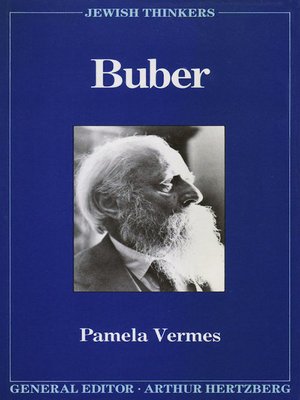
Sign up to save your library
With an OverDrive account, you can save your favorite libraries for at-a-glance information about availability. Find out more about OverDrive accounts.
Find this title in Libby, the library reading app by OverDrive.



Search for a digital library with this title
Title found at these libraries:
| Library Name | Distance |
|---|---|
| Loading... |
On 13 July 1965 more than 2,000 people crammed into the memorial service for Martin Buber.Yet, during his lifetime, some had said his work was esoteric, impossible for most people to understand, and he was branded a dubious interpreter of Jewish values. Who was he then, this gifted man whose studies ranged from philosophy to education, to psychology, to politics, to biblical studies and further? He denied that he was a philosopher or theologian. He refused to accept the feasibility of union with God – the declared aim of the mystic. His role was that of a guide rather than an instructor. 'I demonstrate reality,' he insisted. 'I have no doctrine. I conduct a conversation.' He found it intolerable that religion should be a thing apart, a sacred speciality, and called for the recognition of divine Presence in everyday life. From the Bible and from Hasidism, Buber, an existential interpreter, drew and reformulated truths which Jews and non-Jews alike recognize as necessary to the development and wholeness of the individual. That he was a Zionist there is no doubt though he belonged to a minority which sought a compromise with the Palestinian Arabs. He abhorred bloodshed and sought a peaceful co-existence between the two peoples.







